Ukrainians on P.E.I. mark 90th anniversary of famine and genocide, as war continues back home
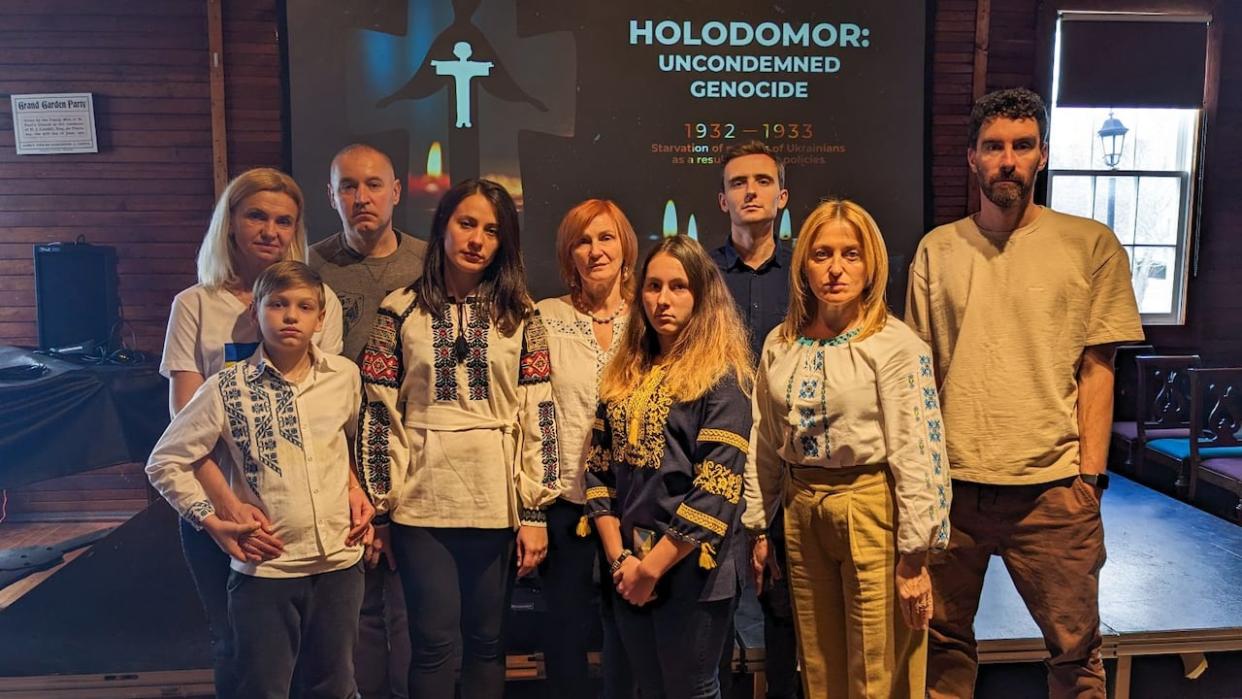
WARNING: This story contains graphic and disturbing content.
P.E.I.'s Ukrainian community is about to solemnly remember one of the darkest periods of the country's history, called the Holodomor, a Ukrainian word that means "death inflicted by starvation."
This Friday's commemoration will be the first in a string of such ceremonies. From now on, after Prince Edward Island legislators unanimously voted on Tuesday, the fourth Saturday of each November will be a day to officially recognize the genocide in Ukraine in 1932 and 1933.
Millions of Ukrainians died when the Soviet Union confiscated their farms and their food, leaving people to starve.
"Ukraine at the time was considered to be the bread basket of Europe," said Elina Lialiuk, president of the P.E.I. branch of the Ukrainian Canadian Congress. "The food was taken from people who actually produced it, and this act of genocide is known as Holodomor."
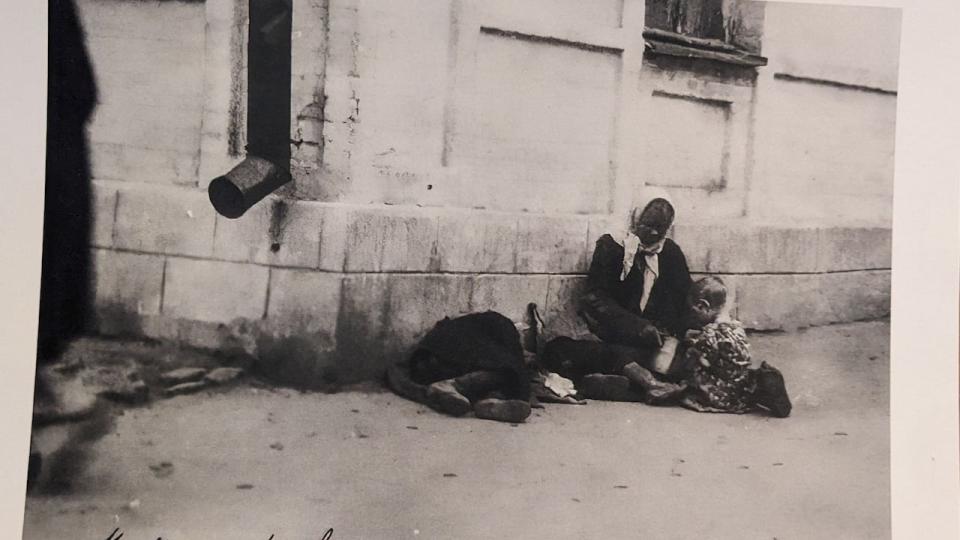
One of the photos that will be part of the Holodomor memorial on Prince Edward Island. (submitted by the PEI Branch of the Ukrainian Canadian Congress)
Back in 2008, the Canadian government recognized the Holodomor as an act of genocide against the Ukrainian people. Prince Edward Island this week became the 8th province to designate a memorial day.
Lialiuk said Ukrainians wear a forget-me-not, a pale blue flower with a yellow centre, to commemorate Holodomor victims, similar to how the poppy is worn on Remembrance Day.
"Taking into account the genocidal war happening in Ukraine right now, it is very important to educate the global citizenry about the horrors of this genocide," she said of what happened in the 1930s.
"Historical lessons like this must be learned, because history tends to repeat itself."
Food as a weapon
Lialiuk said P.E.I.'s passage of the Holodomor bill will help raise awareness about the genocide in Ukraine.
"Not a lot of people know about this tragic age in the history of humankind, since it was prohibited to talk about Holodomor till the 1980s. So for 50 years people didn't know about this crime," she said.
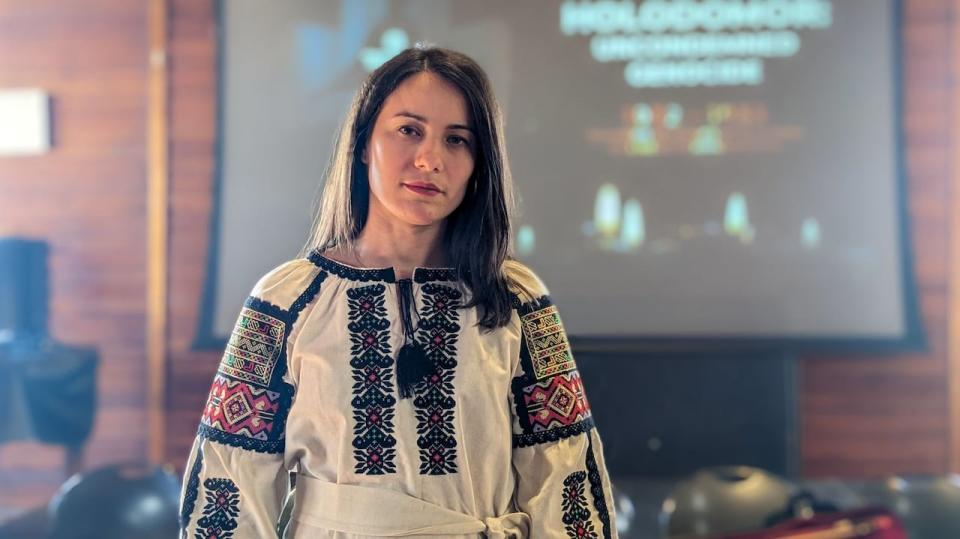
Elina Lialiuk is president of the P.E.I. branch of the Ukrainian Canadian Congress. She spoke about the Holodomor at the provincial legislature before the bill recognizing the genocide passed unanimously. (Shane Hennessey/CBC)
"If you tried to talk about it, you could be exiled. You could be killed. And all the witnesses who knew about [these] atrocities, they actually had to cover it up, to just save their lives."
When other people find out about these pages in our history, this is like a little victory on our frontline here.
—Elina Lialiuk, P.E.I. branch of the Ukrainian Canadian Congress
The Ukrainian community on P.E.I. will hold a memorial event on Friday at the Beaconsfield Carriage House in Charlottetown, including a display of foods that would have been eaten during the famine.
"People used everything that was edible to survive, and sometimes they even prepared soup using leather boots or leather belts," Lialiuk said. "Just the tiniest scrap of food. Even kids could be shot or imprisoned just for the attempt to steal, let's say, a little stalk of green from the fields.
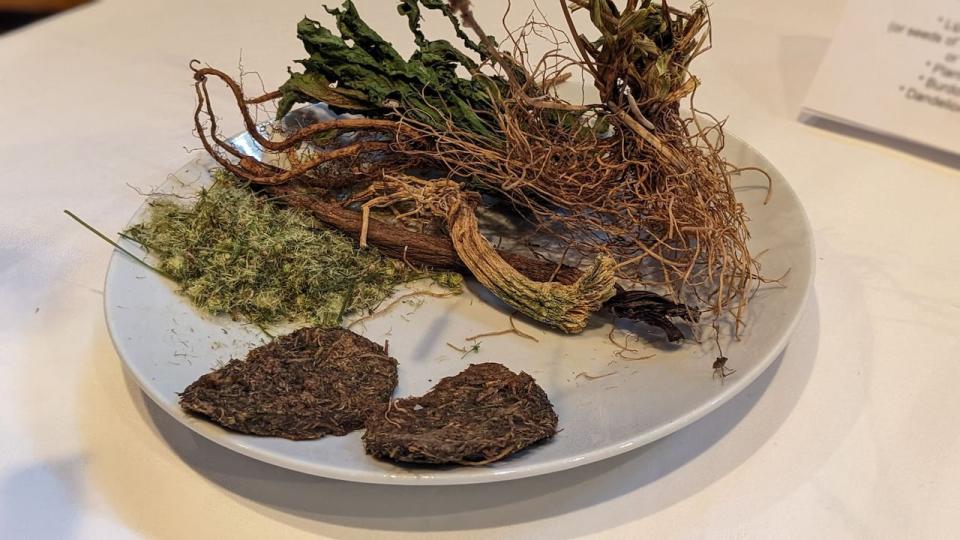
Lialiuk said many people ate roots of different plants and grasses, and sometimes even prepared soup using leather boots or leather belts. (Shane Hennessey/CBC)
"Food was used as a weapon, right? And people were not even allowed to leave the country, so they couldn't flee the starvation. They were either shot, or returned back to starve to death."
A grandmother's memories
Tetiana Rymska, 18, who arrived on P.E.I. from Ukraine in September, is helping to organize the memorial event.
She has family members who survived the famine, and remembers when her grandmother told her about the Holodomor for the first time.
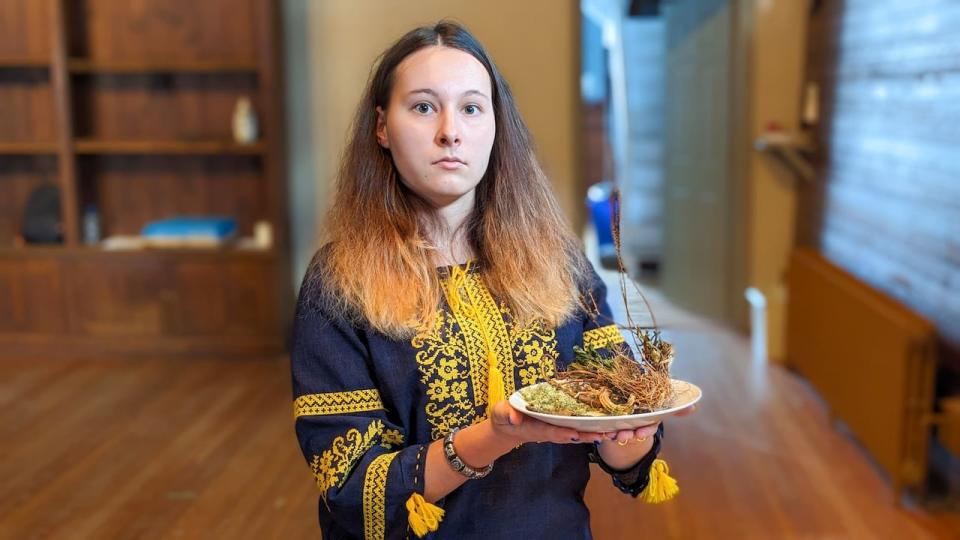
Tetiana Rymska, 18, holds a plate of foods that may have been eaten during the famine. Her grandmother told her about the genocide for the first time, including a story about a sparrow that was cooked and shared by an entire family as well as a neighbour. (Shane Hennessey/CBC)
"She was telling me about how one day she was so lucky because her uncle managed to hunt a sparrow, and they cooked the sparrow, and shared it with the whole family, and even gave some parts of the sparrow to their neighbour, because their neighbour did not eat for a couple of days," Rymska said.
"My grandmother, she described this as such a vivid memory that stayed with her for her entire life."
Rymska said she had never heard about the Holodomor as a child, so her first response was to ask her grandmother why that happened.
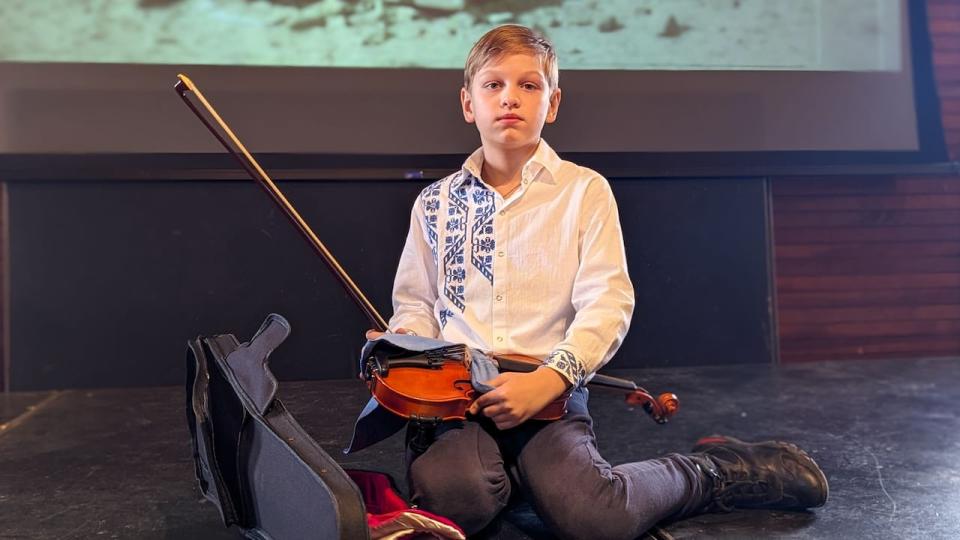
Artur Labik, 8, will perform at the Holodomor Memorial event in Charlottetown. His family arrived on Prince Edward Island in December 2022. (Shane Hennessey/CBC)
"Holodomor was such a terrifying part of Ukrainian history. In my great-grandmother's village, there was cannibalism, there were people dying on the street of starvation.
If during Holodomor Ukrainians were starved, now they are killed with rockets. Holodomor is like a never-ending genocide.
— Tetiana Rymska, 18
"If during Holodomor Ukrainians were starved, now they are killed with rockets. Holodomor is like a never-ending genocide," Rymska said.
"This isn't something that should be silenced or ignored. In fact, we want to encourage more people to learn about Holodomor."
The Ukrainian community is also planning to show a movie about the Holodomor at City Cinema on December 1, to help Islanders learn more about the genocide.
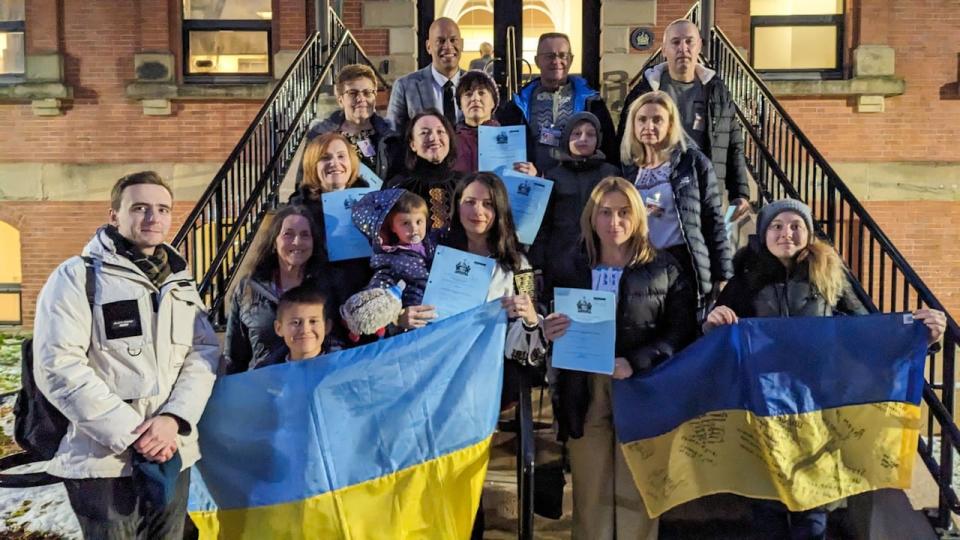
Members of the Ukrainian community of P.E.I. celebrated on the stairs of the Coles Building Tuesday after a bill passed unanimously in the legislature recognizing the Ukrainian famine in 1932 and 1933 as a genocide. (Shane Hennessey/CBC)
"Even though we are not in Ukraine, by raising awareness about Ukraine and Ukrainian history, we stand with the Ukrainian people," Lialiuk said.
"When other people find out about these pages in our history, this is like a little victory on our frontline here."


